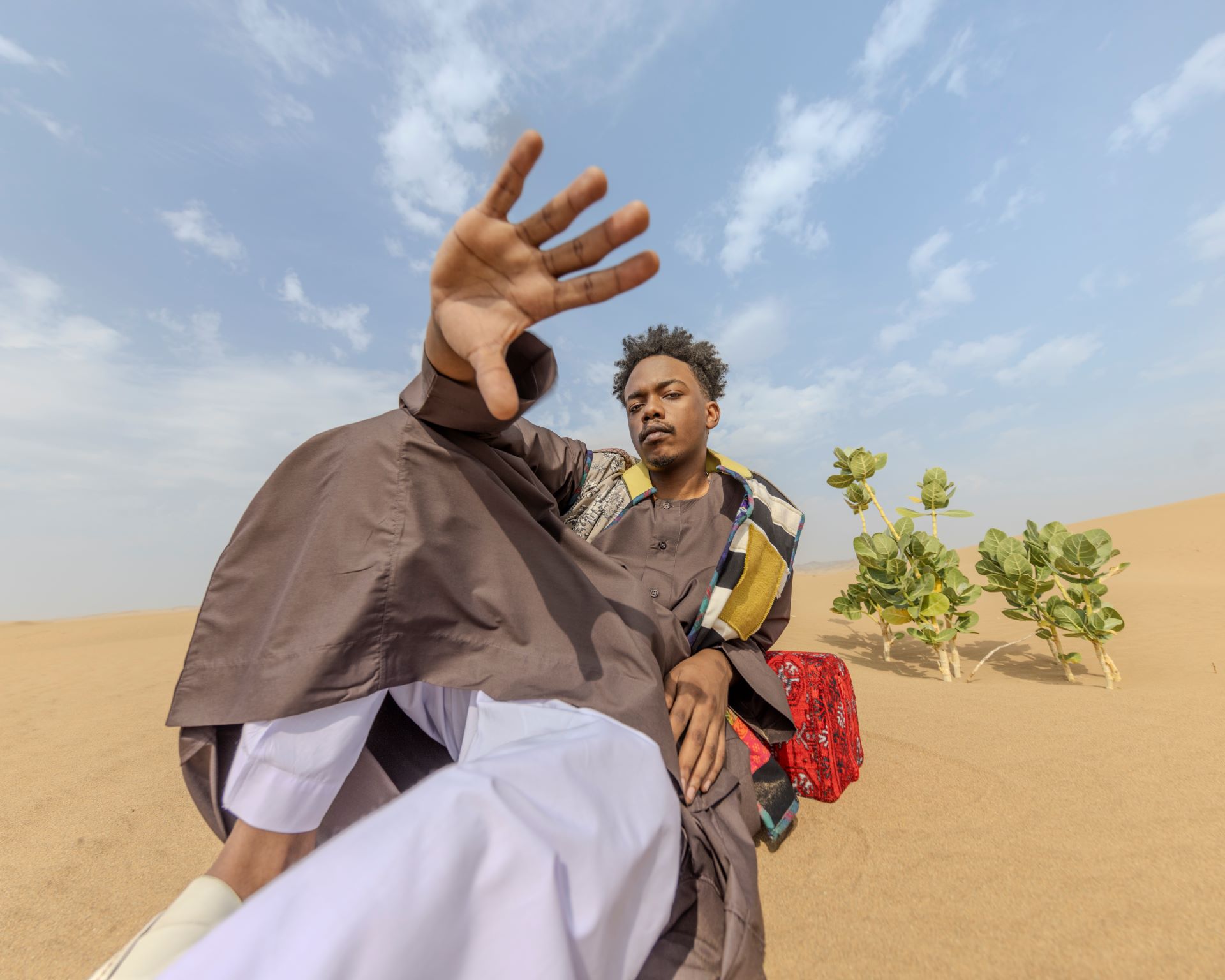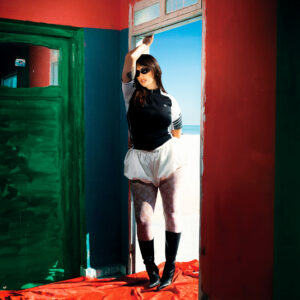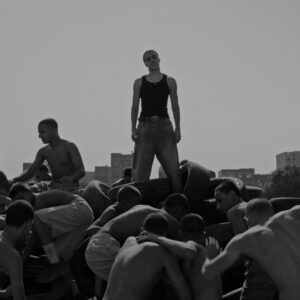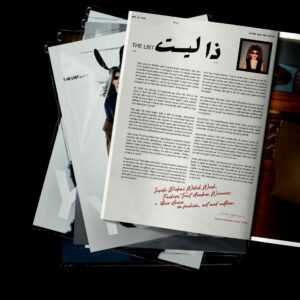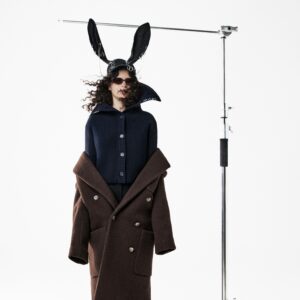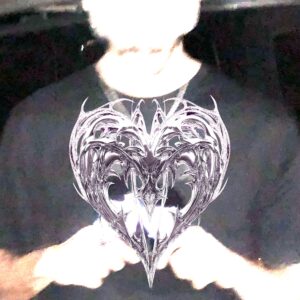Omar Bin Mohammed Alfadel, known to the world as Dafencii (Instagram), is a puzzle, a walking paradox, never fitting neatly into the music industry’s pre-set boxes. He is a rapper, a poet, a disruptor, a traditionalist who embraces experimentation, an artist who moulds words and sounds into a message that bypasses the confines of genres or nationalities. Dafencii grew up in Saudi Arabia but his Sudanese roots run deep. This hyphenated identity is his creative fuel.
“I think in different languages and accents,” Dafencii muses, his voice a melodic blend of his multicultural upbringing. “It’s something I can’t control. Sometimes it’s English or Saudi, other times Sudanese or Egyptian. It depends on where I am and what I was listening to or who I am talking to. The language of my thoughts is the language of my music.” This linguistic dexterity, this ability to seamlessly switch between dialects and cultural references, is a hallmark of Dafencii’s music. His lyrics are a whirlwind of social commentary, personal reflection, and playful wordplay, delivered in a laid-back flow that belies the razor-sharp intellect behind them.
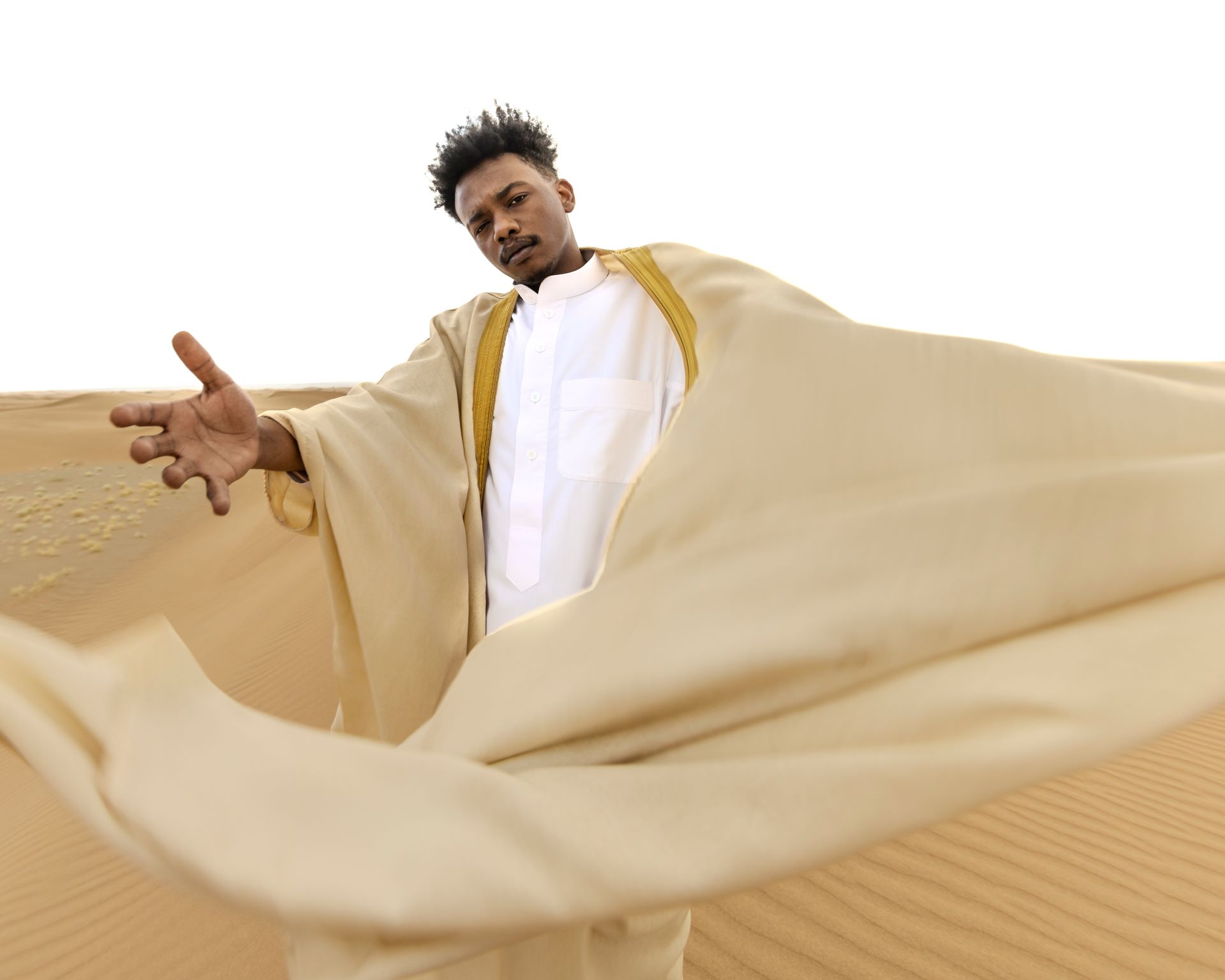
“My music is a reflection of my life,” he declares. “It’s about the things I’ve lived, the things I’ve seen, and the things I want to change.” But it’s not just about the music. It’s about identity, about challenging the notion that one must fit neatly into a single category. He’s a cultural ambassador, a bridge between different worlds. He refuses to be pigeonholed. “I’m a mixture of more than culture,” he asserts. “And I don’t want to be specified as a certain one, not the other. I want to be all parts of myself.” This fluidity of identity is inextricably intertwined with his music, which he aims to make so genre-bending that listeners question what they’re hearing.
“What I want to do is make music that will make people say, ‘What kind of genre is that?’ or ‘What exact nationality is this?'” Dafencii declares. “So, if you’re a playlist curator on the DSPs, you won’t be able to place it in just one category, or under just one umbrella.”

This defiance of categorization is a recurring theme in his work, galvanised by his belief that identity is not a fixed concept but a fluid, ever-evolving mosaic. His ambition is to create music that is not just heard, but questioned, prompting listeners to reconsider their own assumptions about identity and cultural expression.
“I don’t need to show my passport to anyone,” he asserts. “You just need to listen to my music to understand who I am.” This defiant declaration of self, this embrace of multiplicity, is what makes Dafencii such a compelling figure.
Defying the industry’s penchant for categorization, Dafencii’s music is a genre-bending fusion of Sudanese rhythms, Arabic melodies, and American hip-hop. His upcoming project is a marriage of all the different cultural influences that have made him who he is today, incorporating traditional instruments and rhythms while maintaining his signature experimental style.
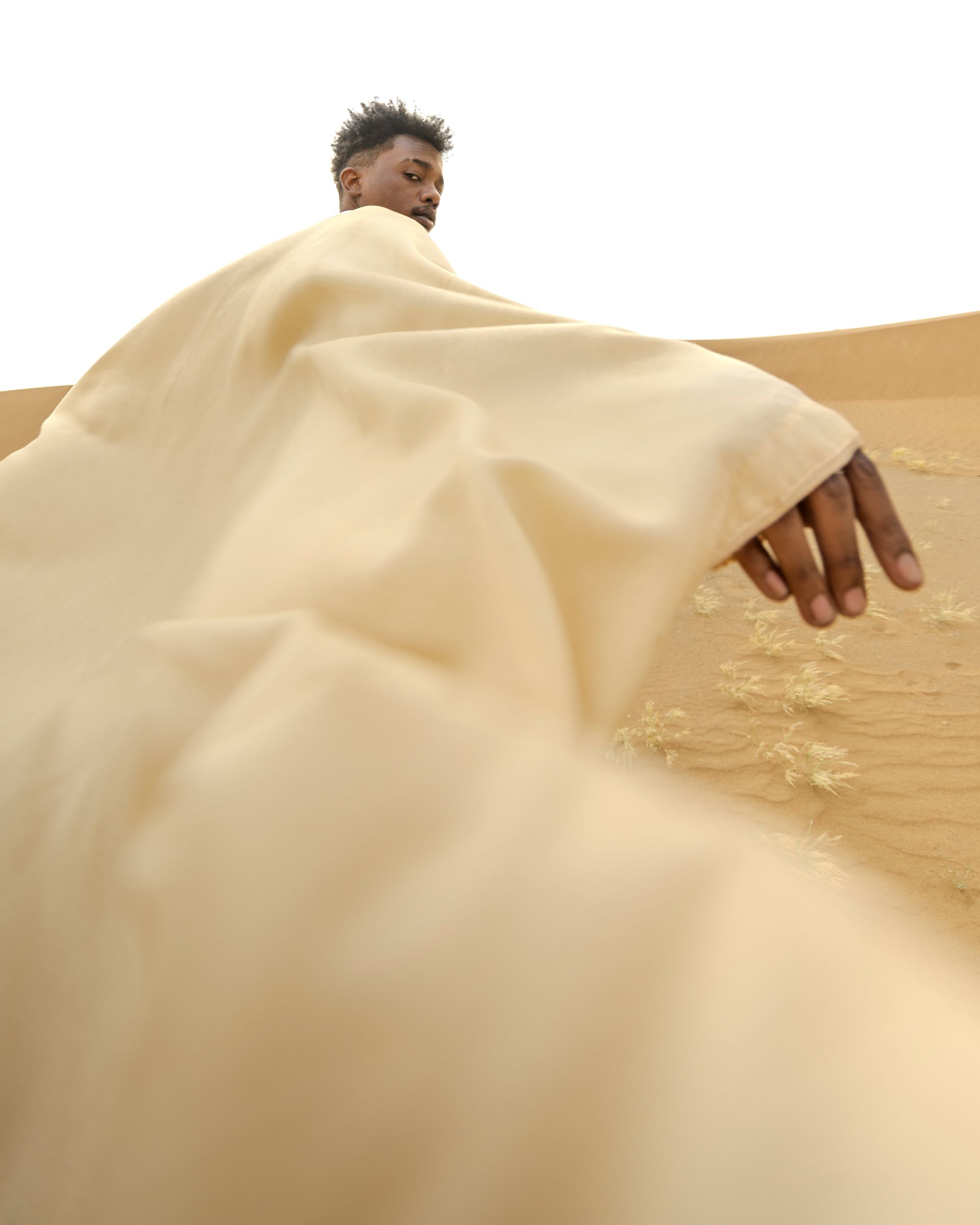
His breakout hit “King Al 7alaba,” a collaboration with Palestinian producer Khayyat, catapulted him into the mainstream. It was a game-changer, a bold declaration of his arrival on the regional rap scene. But Dafencii’s ambitions extend beyond chart-topping hits.
He wants to make music that inspires, that challenges, that changes people’s way of thinking. He is not content with simply riding the wave of mainstream success. In his words, “Success to me is receiving messages from people saying how my music or my interviews changed their life, how it encouraged them to take a step or move forward with their dreams,” he explains. “That’s success to me. That positive influence.”

He also sees his music as a tool for social change, a way to “change people’s ways of thinking.” His lyrics tap into issues of identity, belonging, and the complexities of cultural heritage, inviting listeners to engage in a deeper dialogue about the world around them.
And when it comes to making magic in the studio, there’s no set formula, no rigid structure. Dafencii’s creative process is a whirlwind of ideas, a constant exploration of new sounds and styles. “Sometimes the beat comes first. Sometimes the lyrics come first. Sometimes the name of the song comes first,” he reveals. “My approach to music differs every time. It’s intuitive.” Unburdened by preconceived notions of how music should be made, this spontaneity and willingness to experiment course through his diverse discography, which ranges from introspective ballads to hard-hitting bangers.
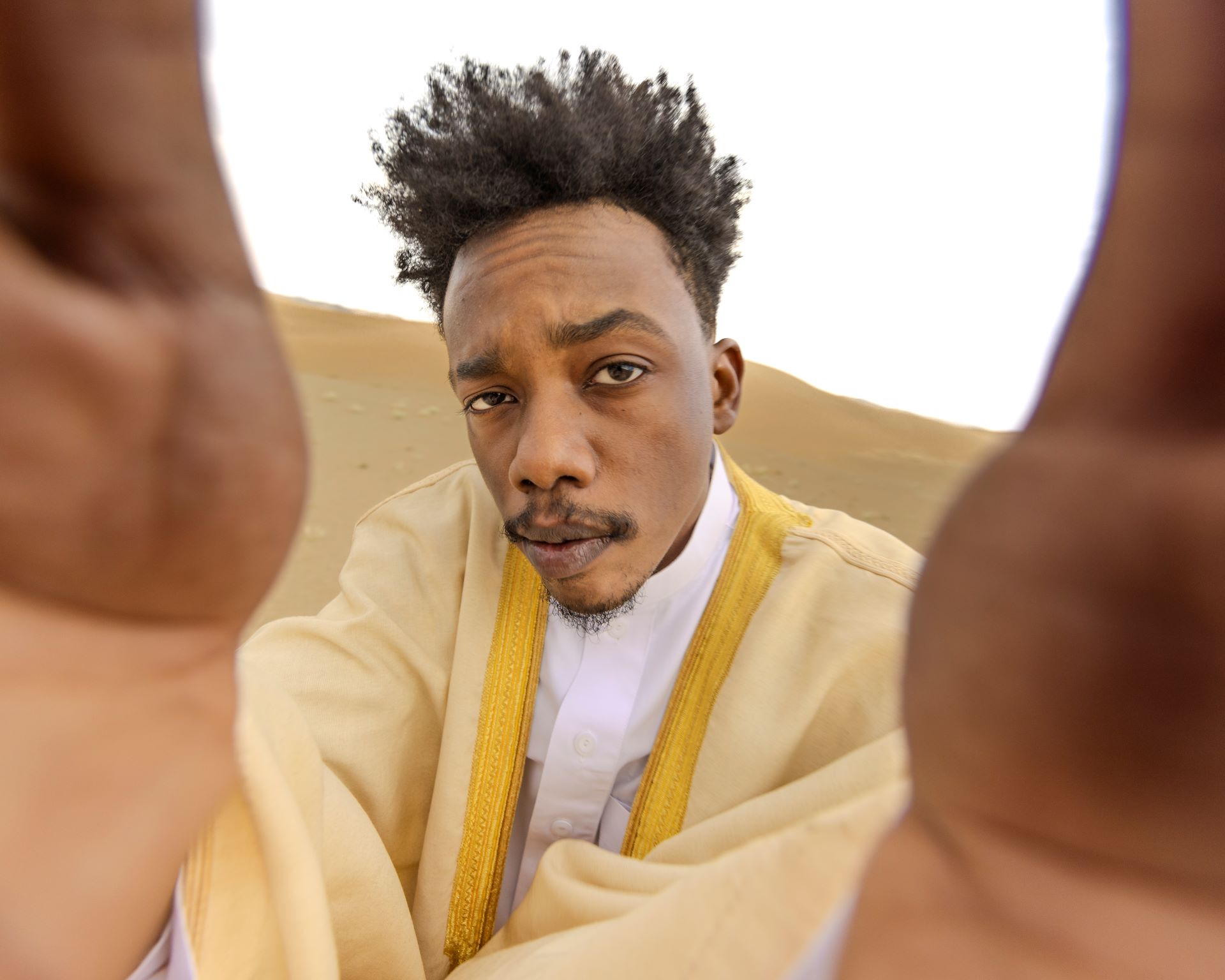
But Dafencii’s music is more than just a collection of songs. It’s a conversation, an ongoing dialogue between the artist and his fans. He values their feedback and sees them as an integral part of his artistic journey. “They made me in a way,” he acknowledges. “They have to be happy about what I’m doing so I can continue to succeed.”
He’s not afraid to peel back the layers of his larger-than-life persona and reveal his vulnerabilities. “I’m trying to be as transparent as I can,” he says. “I’m trying to show everything I feel in my music. He strives to be an “open book for anyone to read,” sharing his personal struggles and triumphs through his music.
Although he has an aversion to labels, if he had to choose one he would be a “creation of God.” “I’m nothing more or less than anyone else that was created by God,” he says, humbly. His words, like his music, are a blend of the sacred and the profane, a reflection of his complex identity as a Saudi-Sudanese rapper navigating the ever-shifting sands of cultural expectations.
For more stories of regional and international music, visit our dedicated archives.
